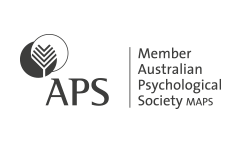

The current projects aimed to tests the efficacy of SBI implemented by a teacher under routine conditions. Schema-based instruction (SBI) is identified as a promising practice for students with a SLD. Many students identified with a specific learning disability (SLD) experience difficulty with mathematical problem solving. The other three profiles show combinations of, relative to the sample, more and less promising specific home learning and general learning conditions suggesting that these students have different resources available in the face of learning mathematics from home. About 35% of the students are assigned to that profile. The best-fitting four-profile solution suggests one profile with comparably unfavorable internal and external resources. A number of general learning conditions, comprising internal (e.g., sustained attention) and external factors (e.g., socioeconomic status), are included as outcome variables.

Based on data from N=223 7th-grade secondary school students gathered via an online survey at the end of the first school year during the COVID-19 pandemic, we used latent profile analysis to identify student profiles defined by the internal factors perceived value and success of students’ math learning from home and the external factors family support and teacher support-all specifically related to home learning. This study aims at describing differences in internal and external resources of students to Strategi-strategi tersebut adalah aturan untuk ijin berbicara, komunikasi interpersonal, pemberian pujian dan self evaluation, menjanjikan reward, pemberian tugas yang dikerjakan bersama “lawan”, guru, atau mandiri, menanamkan konsep sharing is caring, pemberian contoh dan acuan dari teman sebaya, dan melihati siswa Hasil riset ini menunjukkan bahwa pada konteks sekolah dasar pedesaan, guru dapat melakukan 10 strategi membantu siswa melakukan penyesuaian sikap. Analisis data dilakukan dalam tiga tahap: Open Coding, Axial Coding, dan Selective Coding. Setelah mendapatkan semua izin yang diperlukan dari sekolah setempat, anak-anak yang berpartisipasi, guru, dan orang tua, dilakukan observasi. Data observasi dikumpulkan dari para peserta.

Total ada 18 siswa SD yang mulai tahun pertama masuk sekolah tahun ini. Penelitian grounded theory, salah satu tradisi penelitian kualitatif, digunakan untuk mengembangkan penelitian ini. Sangat terbatas sekali riset yang membahas tentang strategi guru membantu siswa menyesuaikan diri pada tahun pertama sekolah dasar khususnya daerah pedesaan yang memiliki sejumlah tantangan. Siswa kelas satu sekolah dasar belum terbiasa dengan suasana di kelas barunya sehingga perlu penyesuaian dalam bersikap.

Results showed that students’ performance during Condition 3 was significantly better than performance during Conditions 1 and 2. Condition 3 included all components used in Condition 2, as well as a group‐based reward contingency. Condition 2 included all instructional procedures as well as goal‐setting, performance feedback, and reinforcement for performance. Condition 1 included all of the AMPPS‐SG instructional components. A multiple baseline design was used with three instructional groups of second grade students to compare the relative effectiveness of three different conditions on students’ math computation skills. This study examined the effectiveness of specific motivational strategies used in the small‐group Accelerating Mathematics Performance through Practice Strategies (AMPPS‐SG) intervention program. Although evidence suggests that intervention in elementary school is critical to supporting struggling learners, and there are several research‐supported instructional practices to support students with math difficulties, the existing research is limited with regard to the impact of motivational strategies designed to improve students’ math skills. More than half of students in the USA perform below a proficient level in math.


 0 kommentar(er)
0 kommentar(er)
